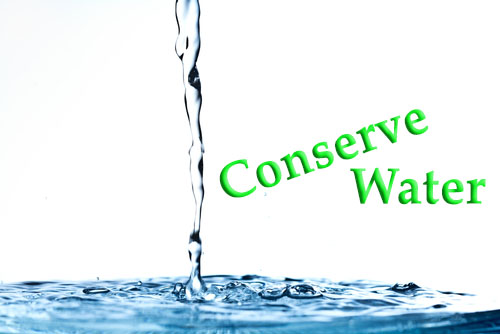Septic tank and sewer line maintenance will be different, but there are general guidelines to follow regardless of what type of system your home has to help avoid any expensive problems occurring. We’ve asked the experts to share their best tips on maintaining a septic tank or sewer system.
Routine maintenance is key for maintaining septic tanks
If your home has a septic system, recognize that you own a wastewater system and what an investment it is. Regular maintenance, no matter how trivial it may seem, will keep your wastewater system operating efficiently for years to come. When you see or smell a problem, it might be too late to remedy without costing a small fortune.
Perform a quick inspection every month
Know exactly how to shut off the water, gas, and power in your home. Know the difference between natural gas and carbon dioxide smells. Most importantly, don’t be afraid to look around underneath cabinets behind water heaters and just do a quick physical inspection monthly to keep anything from rupturing.
Educate your loved ones
Being mindful of plumbing systems in our homes is important now that we’re spending a lot more time at home with family. You need to be talking to your loved ones about what to flush and what not to flush. Some items even claim to be “flushable” but reek havoc on your drain system. The same goes for your kitchen sink. As people stay in more, they end up cooking more. Be careful not to put items down the drain that could jam or clog your drains like grease. And, landscaping needs to be researched before planting. You need to be aware of the location of your main sewer line before planting trees or bushes. Roots can create a huge problem in your plumbing system.
Opt to throw hand wipes in the trash
Do not flush hand wipes down the toilet. This will clog the system, whether a septic tank or municipal wastewater system.
Think twice before flushing if you’re uncertain
An important “don’t” in owning a septic system is to not flush anything that isn’t natural waste and toilet paper. You’d be surprised how often septic problems are caused simply by flushing feminine hygiene, dental floss, hair, and even harsh chemicals. Even some ‘septic safe’ chemicals can be harsh for your system. Using your best judgment is important when maintaining a septic tank. If it seems iffy, try and use as little as possible.
Don’t flush “flushable wipes” down the toilet. Don’t dump food particles down the kitchen sink. Do be mindful of any slow drains.
Don’t flush anything but toilet paper – no wet wipes, no paper towels, no feminine products. These items do not break down properly. Don’t put caustic chemicals (such as acid cleaners) in your toilets, lavatory drains, tub/shower drains, floor drains or laundry drains in an attempt to clear them, these may eat away at the clog but also they will also eat away at your pipes over time. Call a professional if you have a slow drain or stubborn clog.
Get your septic tank serviced
Having your septic tank pumped and serviced tells you where the tank is located, the date serviced, and what maintenance plan to be on. It’s best to spend a few hundred dollars on regular maintenance every three to five years than to neglect the septic system and spend thousands of dollars on a major repair.
Don’t dump fats, oils, and grease down drains
When maintaining a septic tank, avoid pouring fats, oils, and grease down your drains. These substances can quickly build up a thick layer of scum that can be detrimental to your septic system. Most other types of biodegradable materials are typically not a problem. – Full House Inspections
Pouring grease down the drain can be one of the main reasons drains will need a sewer rodding. To avoid that, you should pour it into a heat-protected container and throw it away.
Know where all the components are located
The importance of maintaining your septic tank starts with knowing what type of septic system you have and where the components are located. When having your routine maintenance done, never allow the septic service provider to pump the tank from a cleanout. Always have your septic pumped from the main access lid of the septic tank. When pumping a septic tank the goal is to remove the solids. Pumping from the cleanout will remove the liquid and leave behind the solids. Overtime, solids will compact and/or enter your drain field resulting in costly repairs or replacements of the system. – Tri-County Pump Service, Inc.
Avoid pouring acid-based products or chemicals down the drain
Medication, nail polish remover, mouth wash, engine oil, anti-freeze, fertilizer, paint thinner, bleach, toxic acid-based products and corrosive treatments along with any other products containing harsh chemicals should not be disposed of through septic or sewer systems. Chemicals can cause harm to the bacteria culture in the system, interrupting the breakdown process, corroding the holding tanks, plumbing pipes and the discharge which can potentially pollute ground and surface water.
Healthy enzymes are essential
The use of chemicals to treat the sewer is a bad idea. Sewer systems are full of healthy bacteria and when using harmful chemicals you actually kill the good bacteria and believe it or not a lot of drain smells can come from the dead bacteria deteriorating inside the home’s sewer system. Good bacteria like healthy enzymes are good to use and promote healthy drain lines.


